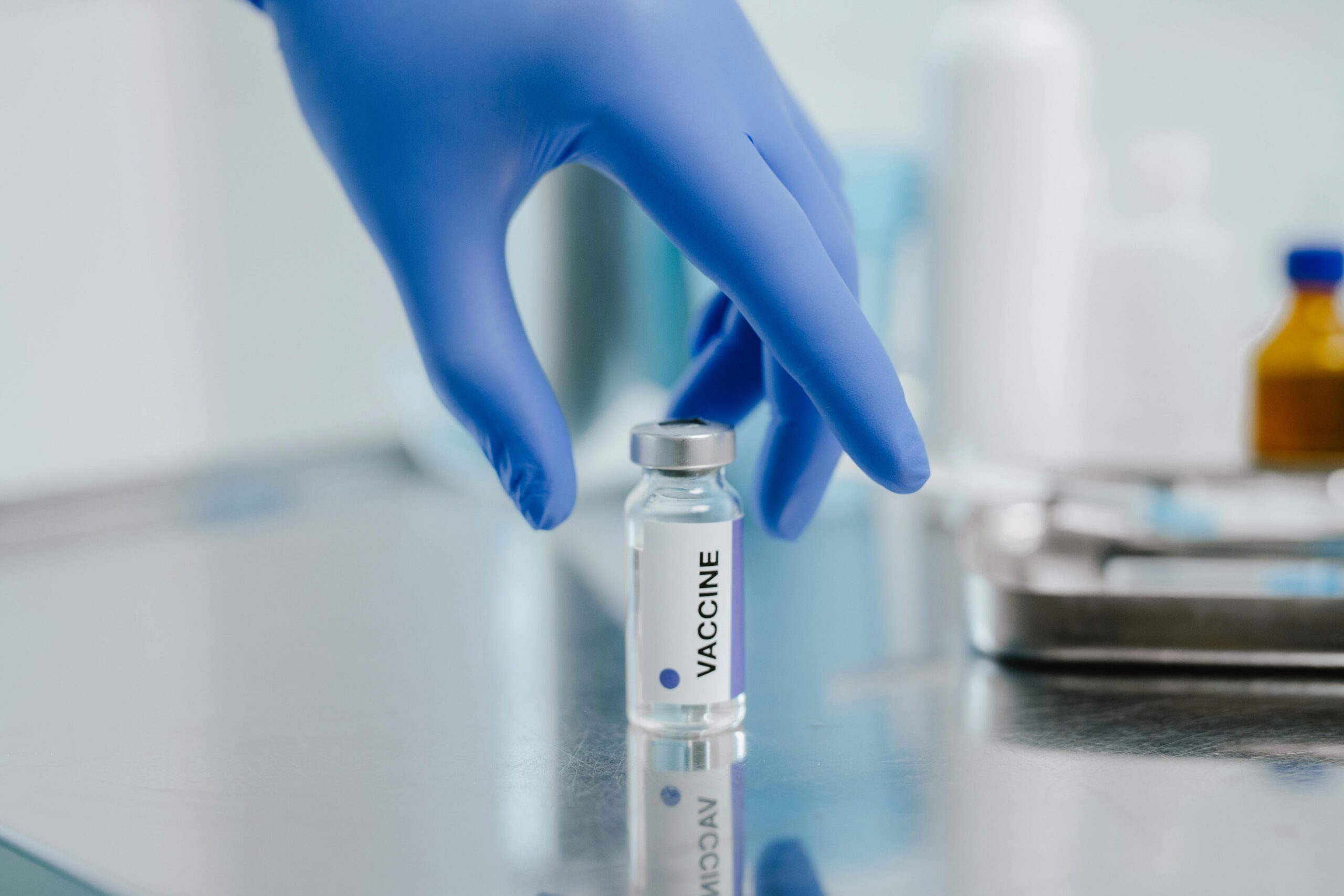It sounds like a sci-fi movie plot: what if tiny bacteria from your gut could travel through your body and reprogram your immune system, making it both stronger against invaders and, at the same time, more likely to cause diseases like heart problems? A new study in the journal Immunity reveals this astonishing truth, showing how the health of your gut could be directly influencing your body’s defense system in ways we’re just beginning to understand. This isn’t just about digestion; it’s about a hidden pathway that could be making you more resilient or, surprisingly, more vulnerable.
For a long time, we thought our immune system worked in two main ways: a quick, general response and a slower, more specialized one that “remembers” past infections. But here’s the game-changer: even the “general” part of your immune system can develop a memory. This newfound ability, called “trained immunity,” means your body’s immediate defenses can learn to react more fiercely to future threats, even new ones.
The truly wild part? This powerful training might be happening deep inside your bones, in your bone marrow, and it’s being jump-started by bacteria that escape from your gut. Yes, the same microscopic residents helping you digest food might be slipping out of your intestines and essentially teaching your immune system’s building blocks to be on high alert. While this “trained immunity” can give you a supercharged defense against infections, the downside is that this constant state of readiness can also worsen inflammatory diseases, like those affecting your heart or brain. It’s like having a highly effective security system that’s also prone to setting off false alarms, causing damage to your own home.
A team of researchers, led by Dr. David Sancho at the Centro Nacional de Investigaciones Cardiovasculares (CNIC) in Madrid, uncovered this surprising connection. Their work highlights a protein called Mincle, which acts as a crucial sensor, detecting these rogue gut bacteria and orchestrating this powerful, yet potentially problematic, immune training.
Gut Troubles: When Bacteria Go Rogue
Our intestines are lined with a protective barrier, acting like a strict border control that keeps the vast population of gut bacteria, known as the microbiota, safely inside. But sometimes, this barrier weakens—perhaps due to poor diet, excessive alcohol, chronic stress, or even certain medications. When that happens, bacteria can slip through this compromised wall and enter the bloodstream, traveling to distant parts of the body, including the bone marrow.
The researchers observed that when this gut barrier was weakened in mice, bacteria indeed traveled from the gut to the bone marrow. What they discovered next was critical: the presence of these traveling bacteria reprogrammed the “progenitor” cells in the bone marrow – these are the foundational, undeveloped cells that will eventually grow into all sorts of immune cells. This reprogramming, a type of “epigenetic change,” alters how genes behave without changing the DNA itself. It essentially gives these future immune cells a built-in memory of exposure to gut bacteria, priming them for a stronger response later.
Among the various bacterial species that made the journey to the bone marrow, Enterococcus faecalis stood out. This bacterium, common in the human gut, can cause infections if it gets into the wrong places. The study indicated that Enterococcus faecalis actively triggered these crucial epigenetic changes, effectively training the bone marrow cells for a more intense inflammatory response.
To confirm that this “training” was due to the bacteria, and not just the gut problem itself, the scientists performed clever experiments. They took bone marrow cells from mice with a compromised gut and transplanted them into healthy mice. Sixty days later, these recipient mice, now carrying the “trained” bone marrow, showed a much stronger inflammatory response when later exposed to a standard immune trigger. This clearly established that the training was a lasting change within the bone marrow cells, capable of being passed on to a new host.
Mincle: The Immune System’s Alert Button
A key player in this entire process is the Mincle protein. This protein functions like a specialized sensor, specifically recognizing signals from bacteria like Enterococcus faecalis. When Mincle detects these bacterial signals, it sets off a chain reaction within the immune cells, activating pathways that lead to that heightened, “trained” immune state.
The researchers conducted experiments using mice specifically bred to lack the Mincle protein, alongside various blocking agents, to pinpoint its exact role. They found that without a working Mincle, the Enterococcus faecalis-induced training of immune cells simply didn’t happen. The strong inflammatory response seen in normal mice was significantly reduced in mice without Mincle. This finding underscores Mincle’s essential role in this gut-to-bone-marrow immune programming.
While this trained immunity, orchestrated by Mincle, can be beneficial in fighting off infections like those caused by Candida albicans (a common fungus) or even influenza A virus, the researchers also observed its darker side. In animal models, increased gut permeability often leads to colitis, an inflammation of the colon. The study showed that mice lacking Mincle experienced significantly less severe colitis symptoms, including less weight loss and colon inflammation, compared to their normal counterparts when exposed to a gut-damaging substance. This suggests that the very mechanism that boosts protection against infection can also worsen inflammatory conditions within the body.
Unpacking the Study: How Researchers Connected the Dots
The study primarily used mouse models, specifically male mice, to investigate the intricate relationship between gut health and overall body immunity. They employed different types of mice, including normal ones, those raised in sterile environments without any microbes (germ-free mice), and genetically modified mice lacking key immune parts, such as those responsible for specific immune cell types or the Mincle protein itself. This allowed the researchers to isolate the effects of gut bacteria and the Mincle protein on the immune response.
To mimic a weakened gut barrier, mice were given a special substance in their drinking water. After this, researchers analyzed various parts of their immune system. They checked for bacteria in different organs, including the liver and bone marrow, using culturing methods and advanced DNA analysis to identify the specific bacterial species that had moved.
To understand the “training” effect, they took out bone marrow cells from these mice. These cells were then exposed to different microbial signals that normally trigger immune responses. The scientists then measured how much of certain inflammatory molecules these immune cells produced, which indicated their level of responsiveness.
A crucial part of their approach involved studying changes in the “stem cells” of the bone marrow – the basic cells that develop into various immune cells. Researchers used specialized techniques to look for long-lasting changes in how these cells’ genes were programmed, which can alter gene activity without changing the DNA itself. They also looked at whether these genetic changes actually led to differences in how the genes behaved.
To demonstrate that this “trained immunity” could be passed on, they performed bone marrow transplants. Bone marrow from treated mice was transferred into healthy recipient mice. These recipients were then exposed to immune triggers or actual infections to see if they had inherited the “trained” immune response from the donor. This helped confirm that the changes were truly embedded within the bone marrow cells.
The researchers also performed experiments to specifically confirm Mincle’s role, using mice without the protein and testing substances that block its activity. They also challenged mice with infections and observed the severity of inflammatory conditions, providing a comprehensive picture of Mincle’s impact.
Your Gut: A Hidden Link to Health and Disease
This research uncovers a surprising and powerful connection between your gut health and the long-term programming of your immune system. It reveals that when your intestinal barrier is weakened, gut bacteria, particularly Enterococcus faecalis, can travel into the bone marrow and, with the help of the Mincle protein, “train” your immune cells. This training makes your immune system more effective at fighting off infections, potentially opening new doors for developing broader defenses. However, the same mechanism, when overactive, appears to worsen inflammatory conditions like colitis, and could potentially contribute to other chronic diseases. The key message here is clear: maintaining a healthy gut isn’t just about digestion; it’s about protecting a finely tuned immune system that can be either your strongest ally or, unexpectedly, a factor in chronic illness.
Paper Summary
Methodology
The study primarily used male mice (6-8 weeks old), including normal, germ-free, and genetically modified strains lacking specific immune components like Mincle. Researchers induced gut barrier disruption using dextran sulfate sodium (DSS) and observed bacterial translocation from the gut to the bone marrow. They analyzed immune cell responses and epigenetic changes in bone marrow progenitor cells using techniques like culturing, DNA sequencing, ATAC-seq, Cut&Tag, and RNA-seq. Bone marrow transplants were performed to confirm the transferability of trained immunity, and the role of Mincle was investigated using deficient mice and inhibitors.
Results
The study found that gut barrier disruption led to the translocation of bacteria, especially Enterococcus faecalis, to the bone marrow. This triggered “trained immunity” in bone marrow progenitor cells, involving epigenetic reprogramming that primed cells for an enhanced inflammatory response. This trained state was long-lasting and transferable. The Mincle protein was essential for Enterococcus faecalis-induced trained immunity. While Mincle-dependent trained immunity protected against fungal (Candida albicans) and viral (influenza A virus) infections, it also worsened inflammatory symptoms in a mouse model of colitis.
Limitations
The study mainly focused on Enterococcus faecalis and Staphylococcus aureus as drivers of trained immunity, though other bacteria may contribute. It did not extensively explore all possible epigenetic changes or metabolic pathways involved. The use of a strong model for gut barrier disruption (DSS) means further research is needed to see if milder conditions have similar effects. Confirmation of similar phenomena in human bone marrow progenitor cells is also required.
Funding and Disclosures
The study received funding from the Spanish Ministerio de Ciencia, Innovación y Universidades-Agencia Estatal de Investigación (AEI), the European Union NextGenerationEU/PRTR, Comunidad de Madrid, Fundación Científica de la Asociación Española Contra el Cáncer, Worldwide Cancer Research, European Research Council, Inmunotek S.L., and Fundación “la Caixa.” Some authors were employees of Inmunotek S.L. or Fundación Inmunotek, and the David Sancho lab receives funds from a collaboration agreement between CNIC and Inmunotek.
Publication Information
Title: Microbiota translocation following intestinal barrier disruption promotes Mincle-mediated training of myeloid progenitors in the bone marrow Authors: Iñaki Robles-Vera, Aitor Jarit-Cabanillas, Paola Brandi, María Martínez-López, Sarai Martínez-Cano, Manuel Rodrigo-Tapias, Marcos Femenía-Muiña, Ana Redondo-Urzainqui, Vanesa Nuñez, Cristina González-Correa, Javier Moleón, Juan Duarte, Laura Conejero, Pablo Mata-Martínez, Carmen María Díez-Rivero, Marta Bergón-Gutiérrez, Iván Fernández-López, Manuel J. Gómez, Ana Quintas, Ana Dopazo, Fátima Sánchez-Cabo, Esther Pariente, Carlos del Fresno, José Luis Subiza, Salvador Iborra, and David Sancho Journal: Immunity Volume: 58 Pages: 381-396 Publication Date: February 11, 2025 DOI: https://doi.org/10.1016/j.immuni.2024.12.012












